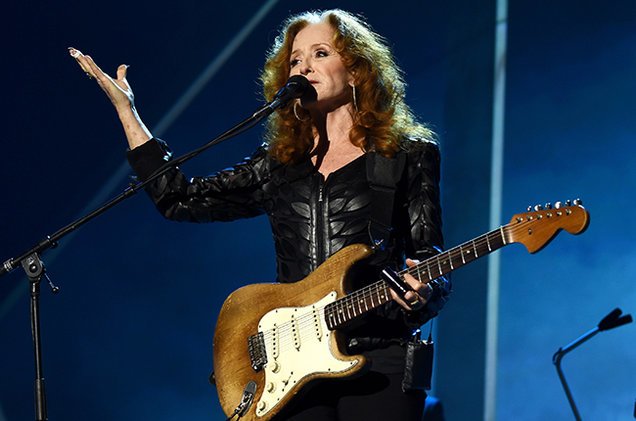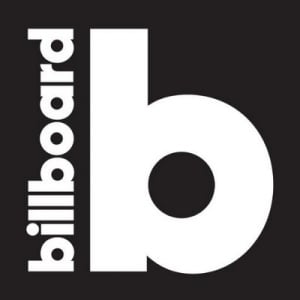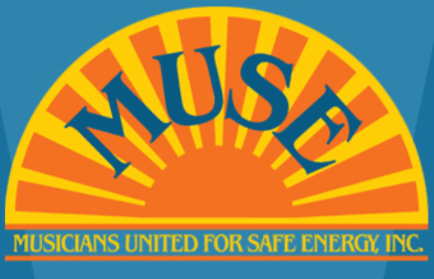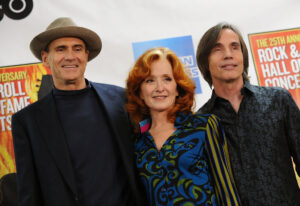
It’s only April, but Bonnie Raitt has already had a massive 2022. Thus far this year Raitt has been awarded a Grammy Lifetime Achievement honor and the Billboard Women In Music Icon title.
Of course to everyone in the industry, and especially her peers, those lofty accolades are just making official what they already knew — Raitt is an American treasure. In music circles she is rightly as revered and loved as Dolly Parton, Willie Nelson, James Taylor and a very few others.
The term “Musician’s Musician” has become cliche, but in the case of Raitt there is simply no more apt term. She has played with and counts among her friends and admirers Bruce Springsteen, Jackson Browne, John Lee Hooker, Tony Bennett, Willie Nelson, Alicia Keys, Ray Charles, Aretha Franklin. The list of artists she has sung with is almost unbelievable.
The list just keep growing as well. On her upcoming tour she will be joined on selected dates by Lucinda Williams, who Raitt says she has never toured with, and longtime friend Mavis Staples.
The tour is in support of Raitt’s absolutely brilliant new album, Just Like That. Out this Friday (April 22), the album should put the multiple Grammy winner right back in the mix for 2023. The centerpiece of the stunning collection is the Raitt-penned title track, a song that may move you to tears as it conjures up thoughts of her late friend, the great John Prine.
From track one, “Made Up Mind,” through track 10, “Down The Hall,” the album is Raitt at her best — heartfelt, moving, rocking, bluesy, vibrant, life affirming. It is an eclectic mix of songs that remind again why Raitt is a musical institution.
I spoke with Raitt via Zoom recently about the new album, her songwriting process, activism, getting back on the road, the concert that changed her life and much more.
Steve Baltin: This is such a wonderful record. Was there a song early on that started this record and got the writing process for this album going?
Bonnie Raitt: For me, it’s a question of going through songs that I’ve stashed over the years that I’m just waiting to find the perfect place to put them on a record. One example of that would be Al Anderson’s “Something’s Got a Hold of My Heart.” I’ve had that song for 30 years. I’m always picking feels and lyrical ideas and grooves that are fresh for me and also just something I haven’t covered and that I really want to add to the show.
So that informs why I write, ’cause I have something important to say that I’m not hearing coming out of the other song choices. But I had a few songs that I’ve known I was gonna record on this record since 2014, when I heard “Made Up Mind” by this band from Winnipeg called Bros. Landreth. I love that song. They actually got a JUNO Award for the album in Canada. They live up there, and I’m just a fan of Joey’s guitar playing and their writing, and it’s one of the best new bands I’ve heard in many, many years.
So I knew I had that one and that’s since about 2015. Al Anderson I had 30 years ago, Jonah Smith’s song I’ve known I wanted to cut since I heard it in 2009, so there was already three in the pocket there, and then my dear friend, Toots, and I were gonna do “Love So Strong” together, and sadly, he passed away from complications, most likely of COVID. So that was a big heartbreak.
The songs that I wrote, two of them, I wrote in early 2019, the lyrics of, but I didn’t put the music on until right before the album. And I have to say I knew they were probably gonna be acoustic guitar songs and not keyboard songs, which I tend to write my more emotional ballads on the piano. I’m a little bit faster on the piano than I am on guitar. But I just really love those early Dylan songs and Jackson Browne’s first album. And best of all, John Prine, and especially having lost him, “Just Like That,” when I was putting the words to that and picking a key and finger-picking, I just was really holding him in my heart for the story songs that he inspired.
Oh, “Waiting For You to Blow,” I always wanted to write a song about that devil on your shoulder for those of us in recovery. But you don’t even have to be in recovery to know that the side of you that wants you to stay up later than you should and have another piece of pie, or tell a white lie about why you didn’t answer someone’s email sooner, all those little ways that our character defaults come up and give us a raspberry while we’re trying to be a good, balanced human being.
So I had written another song called “Feeling of Falling,” I missed that feeling of falling, falling over the ledge, which is also about what it’s like to be in recovery. And this one here is not about not using drugs or alcohol or whatever you’re addicted to, it’s about if you let that slip happen, it can just drag you down. And I’m really proud of the stretch musically that I did on that one. That’s the most adventurous musical foray that I’ve done mixing funk and kind of jazz and all of the drum parts and horn parts and keyboard parts that are in there, either on guitar or keyboard. Those were all things I just came up with on my own. And I wanted to put that topic with that kind of feel, and very much inspired by Mose Allison and Randy Newman, their kind of sardonic point of view when they’re being humorous, but there’s really a kind of a piercing truth to what they’re talking about.
Baltin: Do you feel like you had more room to stretch it out musically because there was time to experiment and you knew that you would have more time before you could go on the road?
Raitt: I wish that were the case, but in fact, I was busier on the two years off the road than I usually am. I usually get a real break and a couple of vacations, but [with] so many elect candidates running for election that needed support, I was able to raise a lot more money and do more events across the year of the election year especially.
But Farm Aid and the gun control benefit and musicians relief benefit, the fire relief benefit, all of the different groups and humanitarian crises and COVID relief efforts that normally you may not be able to fit in because you’re on tour, but because I was at home and all I had to do was turn a video camera on and sing one song from a quiet place, I ended up doing over a dozen guest performances and a couple of duets remotely with Boz Scaggs, I did a duet with Jackson.
And then just managing the volume of requests that came in. If you got 10 requests from California candidates running for the House of Representatives, then you had from every state you’ve ever done a benefit in, every Native American tribe, all kinds of women’s issues, and then we had Black Lives Matter come up, and that’s not even counting humanitarian environmental crises.
So it actually was a relief when this year it looked like we were going to get vaccinations and I was going to actually be able to plan a record and bring everybody in to Northern California where I live. So that’s when I fast-tracked putting the music to those lyrics that I had. But I didn’t feel like I got a chance to stretch out ’cause I wasn’t really off ever the whole time I’ve been home. And ironically I’m more off on the road. When you get on the road, you can use the excuse that I’m saving my voice. You have to do yoga, you have to do exercise, you have to have some peace to meditate, and then it’s time to get ready for the show and check out of the hotel.
So I find I have more time to think about the next project when I’m on the road. But when I can carve time when I’m hiking, which I do almost every day, not only do I love to listen to audiobooks, but I listen and I contemplate what music I’m going to put on the next record. So I didn’t really get in earnest planning these songs until I had a recording date in mind. Then this is sort of my process, when something is six months away, I start. I’m one of those people that writes the term paper like three weeks before that it’s due.
Baltin: As you did these performances were there songs you re-imagined or you developed a new appreciation for?
Raitt: I enjoyed playing “Nick of Time,” for example, by myself on the keyboard, it was a totally different song. “Angel (From Montgomery),” I recorded it before John passed and then several times after he passed, so that song will always be especially wrenching for me. It was always one of the most important ones in my repertoire or whatever you call it, the state shows and what people remember me for. But since John’s passing, it has a whole different resonance to it.
So I enjoyed learning how to play by myself and Jackson was a big inspiration when he went on tour and played. He played a lot of tours and put out a lot of records of all of his songs solo on guitar, and it was really inspirational.
So I think benefits drive us being more comfortable playing stripped-down because it’s just too expensive to bring your whole band in.
Baltin: I’m a massive Springsteen fan as well. I saw you and he, and Jackson, when you guys did the Christic Benefit in ’91, which if I remember, was one of the very first, if not the first shows that he had done that. So it’s interesting to come back to this all these years later. On one hand its cool that you’re able to come back to it for a positive cause, on the other hand, it’s disappointing in times that we’re still so screwed as a culture, and there are still so many causes that need addressing all the time.
Raitt: If you’re an activist and a musician, that’s a tradition that Jackson and I, and [Kris] Kristofferson, and Graham [Nash], and David [Crosby], and everybody grew up with in the ’60s.
But Pete Seeger and the Weavers, and Woody Guthrie, and the people that have been singing songs for labor movements in the Spanish Civil War and the peace movement and the Civil Rights movement, the Staple Singers, all of those people were inspirational.
In our pre-teen and teenage years, those were our heroes. Bob Dylan, Joan Baez, were out in the front lines, singing songs about the things that we’re still singing songs about now.
So we’ve played five decades now of stripped-down solo versions of our songs up on stages before people took off and marched somewhere. So it’s something that reminds me of when I’m being of service so it was really kind of natural. But to do it in a room when you know you’re being filmed and not just everybody out there is gonna see it that’s standing there in front of you, but this is gonna be online forever, that has been a real adjustment for me. But I’ve gotten more used to it. And nothing’s as terrifying as SNL (Saturday Night Live) the first time when you’re only 27.
Baltin: You did Billboard Women of the Year where you’re being honored with Phoebe Bridgers who I interviewed last year and is awesome. So what advice do you have for young artists doing SNL for the first time?
Raitt: I think that the scene is so different with kids in the success of generations from who’s ever 18 now to 28, they’ve been in the internet and social media and on so much more broadcast, live visual media than we were at the time. We didn’t have MTV, we didn’t have cable, we didn’t have the ability to record off the TV, so you were just performing live and that was gonna be it.
But I think looking at the poise that Adele and Taylor Swift and Ed Sheeran have and how comfortable they are on camera, Billie Eilish, it’s like they were born on camera.
So, I think if anything, they get more and more brave when it’s a live performance, something like SNL, there’s nothing to lose by being completely transparent, and I admire that tremendously. I don’t go on social media to read comments about whether someone’s liking what I’m saying or doing because I don’t have the thicker skin that younger people do, so I think they would give me advice more than the other way around.
Baltin: As you talk about the younger artists, Billie, Taylor and others have really used their social platforms for activism. Has that encouraged you to see a new generation of artists become activists?
Raitt: Yeah, I’m very encouraged. This has been the most fraught, upsetting, stressful, vitriolic and worrisome time in my lifetime. Of all the crises of the Cold War and Civil Rights riots and the Vietnam War, nothing compares to the delusion and lack of belief of the centre values of democracy, and elections, and integrity about science and experts. Nobody’s agreeing on who’s an expert.
None of us could have imagined that this was gonna be our new landscape, and not to mention, we saw the climate disasters coming. We saw what the one percent and the Occupy Wall Street was very, very encouraging. The Greta [Thunberg] with her climate change uprising of especially young people in the streets, Black Lives Matter, the Women’s March, the number of cross generations, cross-cultural, cross racial lines, segregated parts of society that don’t normally interact, the way that’s coming together musically, and in film, and in activism is extremely uplifting for me and encouraging at a time that is the literally the darkest time that I can imagine being alive, since I’ve been alive.
That’s why I wrote that song “Living For The Ones Who Didn’t Make It,” because I literally did not think I could get out of bed a whole bunch of days in this last terrible election cycle. And then George Floyd, it was just one hammer after another, and I’m living in a privileged section of the world where we have security and we have the access to health care and good advice and organic food and don’t have to worry about whether we’re gonna lose our house or not.
The majority of people are suffering terribly, and of course, the ones that are getting the brunt of the impact of climate change and poor health are the people at least able to afford it. And they haven’t been the cause of what’s making the social inequity or the lack of access to health care and food and education, so it’s beyond daunting, it’s an insurmountable issues to solve. So to see the inspiration of younger people really taking up the charge and not being like in the ’80s, the Me decade or whatever, “Let’s just party on dude, or drop out and smoke pot,” they’re actually getting involved.
So I’m really happy to see that, it’s the one encouraging thing that I see. And I’m having to spend a lot more time in nature and with animals. In the shutdown, it has given some solace and some comfort to go into deeper meditation and yoga practices, and read more, and listen to music that have nothing do with finding songs for the next record. So on that level, on my off hours when I’m not working on my career or managing my activism with my team, I really find that I’ve learned a lot about self-care and reconnecting with the spiritual uplift and the joyful parts of life that are untouched by what’s going on in the world.
I have to not read the first section of the paper until I’m really awake in the afternoon, and I don’t doom scroll on the news too much. So I’ve learned how to cope, but I’m telling you, when I get out there and play music again, it is gonna be so much fun and so uplifting and so much joy. To take the ability to have that exchange with the audience, that catharsis and that tribal exaltation, and pull it away for two and a half years has been just unbelievable, especially without the release of playing live during all this stressful time of the pandemic and climate and George Floyd and the election.
So I’m really hoping that we can get back on the road and do this tour because it’s medicine on a level that we really need, for the audience and for me.
Baltin: What was that first show that was medicine for you?
Raitt: I got to go to the Santa Monica Civic Auditorium, which I ended up playing many years [later] once I became a professional. I saw Bob Dylan, I believe, in ’64. I’d have to look at the history of that theatre to see when he actually played or his history, but my mum took me when I was 14 to see Bob Dylan, and I also got to see Joan Baez somewhere in LA as well. And those two were my absolute heroes. I sang all their songs, I was inspired to pick up the guitar because of Joan.
We were Quaker, she was Quaker. All of her melding of music, and activism, and bringing Bob Dylan out on stage. I avidly read Sing Out magazine. I was too young to get to Greenwich Village and get to hear all those people play live, but I just followed it.
But Joan Baez and Bob Dylan were the two concerts that I would say just changed my life.
Baltin: On this upcoming tour you are going out some dates with Lucinda Williams, who was once named The Greatest Songwriter in the World, by Time Magazine, and obviously, Mavis Staples is a legend. When you get to perform with people like that, talk about how it inspires you on a nightly basis.
Raitt: Well, we are mutual fans of each other, as well as I’ve been friends with Mavis for many years. It’s funny, when Jackson and I first met, one of our touchstones for what we had in common. And The Staple Singers were our favorite group.
It’s a great joy to be able to have an extended period of time on tour together. So you can actually hang out in the wings and watch each other from night to night and just see that magic in person. And I’ve never toured with Lucinda. So that’s gonna be a thrill. We’ve met, but we’re not friends, but I’m hoping that we will be able to have enough time.
We’re all in a little COVID bubble on this next eight months, so we can’t really hang out with anybody on the days off. There won’t be meet and greets after the show, so we’ll actually have some time to hang out. But we haven’t sung together, but I’m hoping that we’ll find something we can do.
And Mavis and I usually do “Can Nobody Turn Me Around” and “Will the Circle Be Unbroken?” We kind of toggle between those two and we’ll just play it by ear so we give the fans something new because her last three albums in particular, but maybe the last five, have been some of the greatest records I have. So she’s at the top of her game.
And when people say, “Are you planning to retire?” I look at Tony Bennett and Mick and Keith and Bob Dylan and Mavis, and think about what kind of singing in level that BB was putting out right until the very end. Why should I retire and be bored to death? So it’s really gonna be fun to perform and listen to each other again and just hang out ’cause there’s so much love there between our two bands.













 Visitors Today : 103
Visitors Today : 103 Now Online : 0
Now Online : 0



































































































